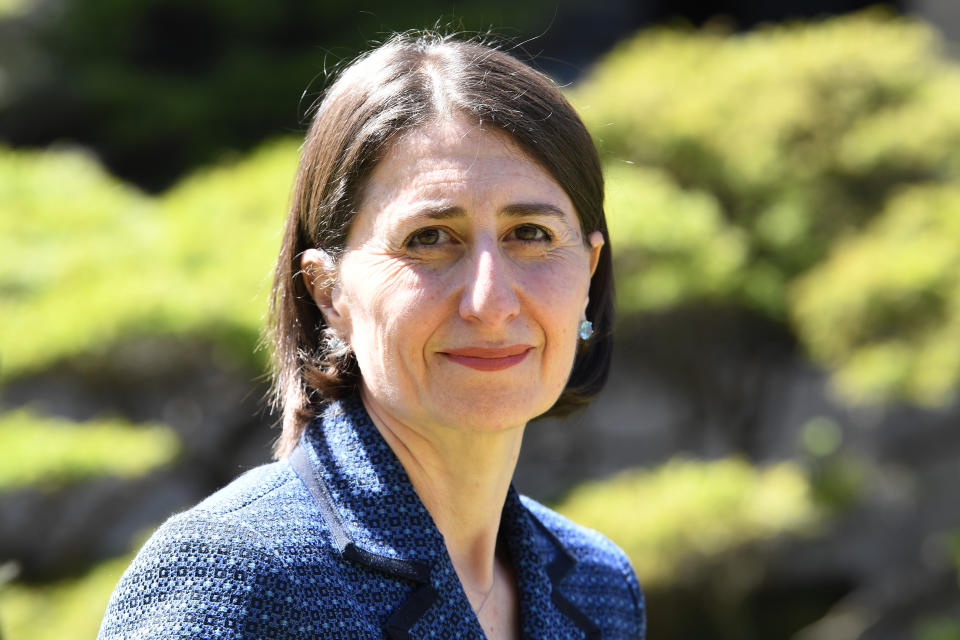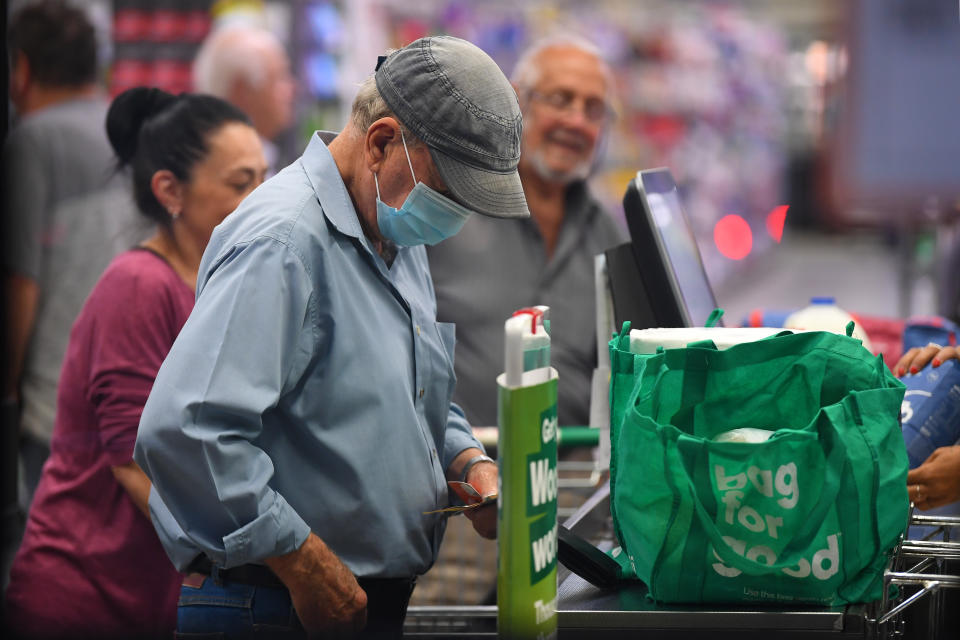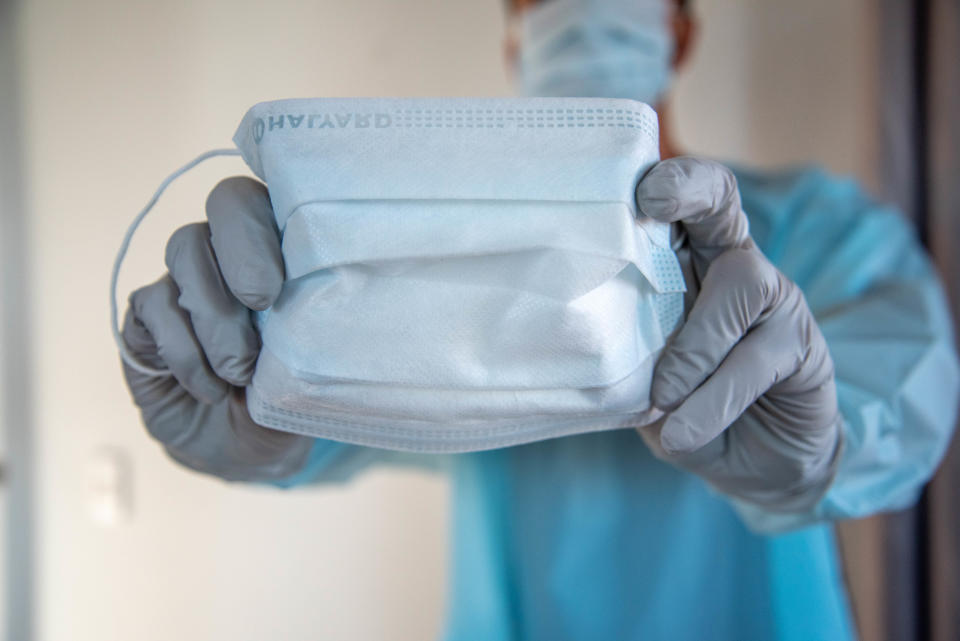The confronting new advice for stopping the spread of coronavirus
Residents of NSW have been told to act as though they have coronavirus in order to prevent the spread.
Cases in the state jumped to 307 on Thursday, with a six-year-old among the latest to test positive.
The number increased from 267 on Wednesday.
Speaking to reporters, NSW Chief Health Officer Dr Kerry Chant, said there were six people that required intensive hospitalisation and the vast majority of cases have only showed mild symptoms and could be treated at home.
Premier Gladys Berejiklian said she is determined to keep the numbers of the critically ill low.
“We don’t want to see an escalation in the number of people who need intensive care in hospitals,” she said.
Coronavirus live blog: Latest news and updates about the crisis in Australia
“That’s our aim, to keep that number down, and we can do that by reducing the spread and especially protecting the most vulnerable and all of us have a role to play.
“We know already that for many people the symptoms aren’t even evident and they’re carrying the virus. That’s why all of us have to assume we have it.
“You have to act in a way as though you have it and how you won’t want to transfer that to other people.”

What you can and can’t do under new coronavirus rules
You can no longer travel overseas, with Mr Morrison saying this is the first time such a strict travel ban has been implemented in Australia’s history.
“Do not go overseas. That is very clear that instruction,” he said at a press conference on Wednesday.
On Sunday, he also announced anyone arriving in Australia would need to self-isolate for 14 days.
On Thursday he then went a step further announcing a new travel ban preventing all non-Australian citizens and non-residents from coming to the country.

Any Australian resident or citizen already overseas is being urged to return home as soon as possible. Cruise ships have also been barred from docking at Australian ports for 30 days.
The government announced on Sunday it was banning all “non-essential static gatherings” outdoors, or meetings where people are seated for an extended period of time, of 500 people or more.
On Wednesday, Mr Morrison said the government was banning “non-essential” indoor gatherings of 100 people or more.
How to self-isolate
Self-isolation is a daunting prospect for many but it has now become reality for millions right around the world as governments attempt to get to grips with a surge in coronavirus cases.
Along with people who have returned from overseas, those who have had close contact with a confirmed case must also self-isolate, even if they’re not showing any symptoms, the Department of Health says.

If you develop symptoms such as a fever, cough, sore throat, tiredness or shortness of breath, you must contact your doctor or hospital immediately.
They will assess your situation and may arrange for you to attend an assessment. Judging on your test results, condition or living situation, you may be kept in hospital or sent home to continue self-isolation.
If you don’t have any symptoms, the people who normally live with you such as your partner and children can be around you.
However if you later begin showing symptoms, the people you have been in contact with would then have to undergo their own 14-day self-isolation.
If you have symptoms and are feeling unwell, it is vital you have your own room and minimise any contact with family or those living with you.
Do you have a story tip? Email: newsroomau@yahoonews.com.
You can also follow us on Facebook, Instagram and Twitter and download the Yahoo News app from the App Store or Google Play.





